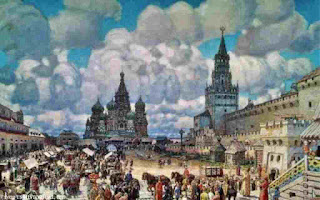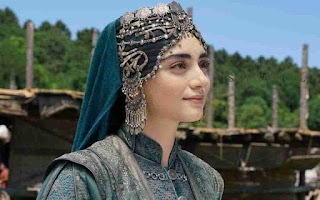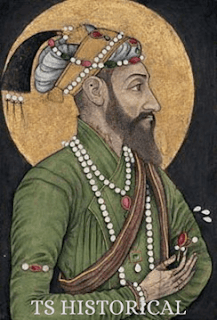History of Russia
The History of Russia
Source - TS HISTORICAL
The history of Russia: begins with the East Slavic race. The oldest stronghold of the Slavic race that inhabits what is today Eastern Europe was Kyiv, where the Kiwi Rus Empire, established in the 9th century, is considered the cornerstone of modern Russia. Although there had been empires in that area before, they belonged to other races and people of those races still live in Russia today - Khazars and other Turkic peoples.
The Kiwi Rus were overthrown in the Mongol campaign around 1230, but the Mongols began to decline in the 1380s and Moscow (Moskva in Russian) emerged as a military capital. From the 17th to the middle of the 19th century, the Russian Empire expanded greatly. It spread from the Pacific Ocean to the Baltic Sea and Central Asia. Russia had to face considerable internal difficulties in the First World War, and after the Bolshevik Revolution of 1917, Russia withdrew from the war.
After showing unexpected resistance and eventual victory against the German army that seemed invincible in World War II, Russia and its communist hero Joseph Stalin grew in power in world politics. The productive capacity of industries and the economic condition of the country kept fluctuating. Soviet Russia was born in the late 1930s, a group of communist republics. After the Second World War, this association was disbanded in 1991 during the Cold War era.
There are many theories about the origin of Kiwi Russians. The Scandinavian Vikings made their capital in Kyiv (modern Ukraine) after displacing the Khazars who were already located in the steppe. This is where the history of the Russian Empire begins. This Kiwi kingdom continued to exist for the next 300 years. This empire served as a link between Northern Europe and the Muslim Abbasid Caliphate. However, this was just a simulation of the trade route established by the Khazar people. The Khazar people adopted Judaism in the eighth century. In the ninth century, Rousseau also started talking about applying Islam as the state religion. The reason for this was that Islam allowed multiple wives, which attracted the then prince Vladimir. But because of the strict prohibition of alcohol in Islam, he abandoned the idea of adopting Islam and in 988 the Russian Empire became Sanskrit in Christianity.
Mongol invasion
After 1200, the power of the Mongols increased tremendously. The Mongol army was organized following Khan Temujin (Genghis Khan) of Mongolia, and the Russian Empire of Kyiv was torn apart by Tatar invasions in the 1230s. But in 1380 the Maski prince Dmitry Donskoy won a decisive victory against the Tatars in the field of Kulikovo. Since then the name of Moscow comes in the history of Russia. Moscow became the capital of the new Russian Empire.
Expansion of the Russian Empire
Ivan III, also addressed by the title 'Great', expanded the Russian Empire into Europe. At first he defeated the ruler of Lithuania and eventually his empire expanded threefold. After this came Ivan IV, who is also remembered as 'Ivan the Fierce'. He showed strictness against the feudatories and those who were against him were even killed. After Ivan IV, there was an atmosphere of anarchy. His son died childless and for many years the power kept going in many hands. After this Mikhail Romanov was made the ruler. The Romanov dynasty ruled Russia for the next 300 years.
After the Romanovs became the ruler in 1613, there was stability in power, but due to the industrial revolution and scientific discoveries in Western Europe, Russia still remained backward. After this it was improved during the reign of Peter. Peter toured Western Europe in disguise and thus kept an eye on the progress of Europe. In this sequence, it is said that he once worked as a carpenter in a ship company in Holland. After returning, Peter also started the modernization of Russia. Peter made military reforms, costume improvements and calendar reforms. He conquered the ports of the Baltic Sea by defeating the Swedes and thus opened up new opportunities for trade. To bring the empire out of disrepair, in 1703 he built the new capital of the empire, which is today called St. Petersburg.
40 years after Peter's death, Catherine, who was of German descent, was succeeded by the throne. She was married to Peter's grandson. He added a new chapter to the Russian Empire and history. Alexander Suvorov, the commander in chief of Catherine's time, set a record of not losing a single battle and was able to return to Italy in 1799 after Napoleon's encounter with the French army.
Napoleon's withdrawal from Russia - this war-hit Napoleon's conquest
But Napoleon came again in 1812 to attack Russia. He laid siege to Moscow and put pressure on the Russian Empire to surrender. But due to rural guerrilla warfare and the extreme cold at this time, the French army had to face many difficulties and eventually Napoleon was defeated. This war gave birth to Leo Tolstoy's world-famous novel called War and Peace.



Comments
Post a Comment